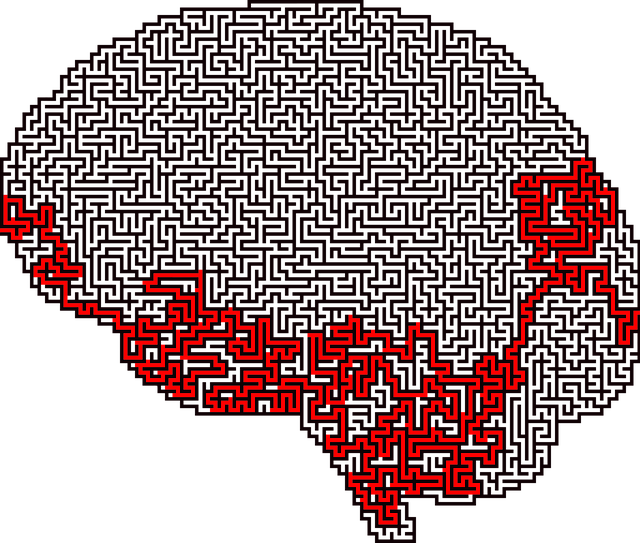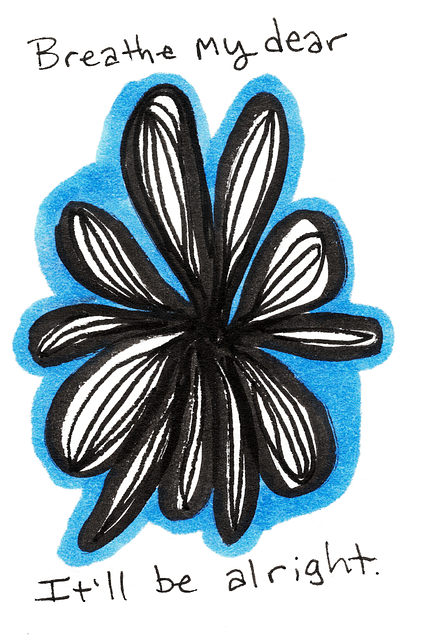Cognitive Processing Therapy (CPT) is an effective approach to managing stress and enhancing mental wellness by identifying and changing negative thought patterns. In crisis situations, CPT provides practical strategies to cope with overwhelming stress, teaching individuals to recognize and replace unhelpful thoughts with balanced, reality-based responses. This transforms one's mental landscape, fostering calm even in chaotic circumstances. By incorporating mindfulness meditation, deep breathing exercises, setting boundaries, prioritizing self-care, and regular physical activity, CPT prevents burnout, especially for healthcare providers. Teaching and learning innovative stress relief skills through CPT techniques in educational frameworks promotes emotional intelligence, reduces anxiety levels, and enhances resilience for lifelong stress management.
Stress management is a vital skill in today’s fast-paced world. This article explores effective techniques, with a particular focus on Cognitive Processing Therapy (CPT), a powerful tool for navigating stress. We’ll delve into how CPT helps individuals understand and manage stressful thoughts, offering a sustainable approach to well-being. Additionally, we’ll discuss practical strategies for integrating stress management into daily life and the crucial role of teaching and learning in empowering individuals to master these skills.
- Understanding Cognitive Processing Therapy: A Powerful Tool for Stress Management
- Implementing Effective Stress Management Techniques in Daily Life
- The Role of Teaching and Learning in Mastering Stress Relief Skills
Understanding Cognitive Processing Therapy: A Powerful Tool for Stress Management

Cognitive Processing Therapy (CPT) is a highly effective approach to managing stress and enhancing mental wellness. It focuses on understanding and changing negative thought patterns that contribute to distress, offering a powerful tool within the realm of mental health education programs design. By identifying distorted cognitive processes, individuals can learn to reframe their perspectives and develop healthier thinking habits. This therapy empowers folks to navigate life’s challenges with greater resilience.
In situations requiring crisis intervention guidance, CPT provides practical strategies to cope with overwhelming stress. It teaches individuals to recognize unhelpful thought triggers and replace them with more balanced, reality-based responses. This process facilitates a profound metamorphosis in one’s mental landscape, fostering a sense of calm and composure even amidst the most chaotic circumstances.
Implementing Effective Stress Management Techniques in Daily Life

Implementing effective stress management techniques is essential for maintaining a healthy balance in daily life. Cognitive Processing Therapy (CPT) offers a powerful framework for addressing underlying thought patterns that contribute to stress and anxiety. By identifying and challenging negative or distorted beliefs, CPT helps individuals develop healthier coping mechanisms, thereby reducing their overall stress levels. This therapy encourages active participation, teaching practical strategies to navigate stressful situations more effectively.
Incorporating these techniques into daily routines can significantly prevent burnout, especially for healthcare providers who often face high-stress environments. Simple practices such as mindfulness meditation and deep breathing exercises, when incorporated with CPT principles, provide immediate Stress Reduction Methods. Additionally, setting boundaries, prioritizing self-care, and engaging in regular physical activity are integral components of a holistic approach to Depression Prevention. These strategies not only enhance overall well-being but also empower individuals to better manage stress across various aspects of their lives.
The Role of Teaching and Learning in Mastering Stress Relief Skills

Teaching and learning play a pivotal role in mastering stress relief skills, which are essential for overall well-being. Through effective pedagogies, individuals can learn to identify and challenge negative thought patterns, a key component of cognitive processing therapy. In educational settings, teachers facilitate interactive sessions that encourage students to explore their emotions, fostering emotional intelligence. By teaching conflict resolution techniques, mental illness stigma reduction efforts, and promoting open discussions about emotional healing processes, educators empower learners to manage stress proactively.
In the process of learning, students gain practical tools to navigate challenging situations, enhancing their ability to respond rather than react to stressors. This supportive environment encourages self-reflection and mastery over one’s mental state, leading to improved resilience and reduced anxiety levels. The integration of these therapeutic approaches within educational frameworks equips individuals with lifelong skills, enabling them to approach stress management as a holistic and integrated part of their daily lives.
Incorporating stress management techniques, such as Cognitive Processing Therapy (CPT), into daily routines can significantly alleviate stress and enhance overall well-being. This article has explored powerful tools like CPT, practical strategies for implementation, and the pivotal role of teaching and learning in mastering stress relief skills. By understanding cognitive processes and employing effective techniques, individuals can navigate life’s challenges with greater resilience, ensuring a healthier and more balanced lifestyle.














